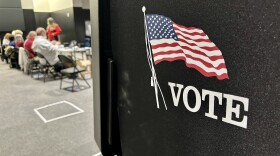In July, American Electric Power got the green light from the state regulatory body the Public Utilities Commission of Ohio to move forward with its data center tariff.
The award-winning team of the Ohio Public Media Statehouse News BureauTM presents insights and "the scoop" on the story behind the scenes of Ohio politics.










